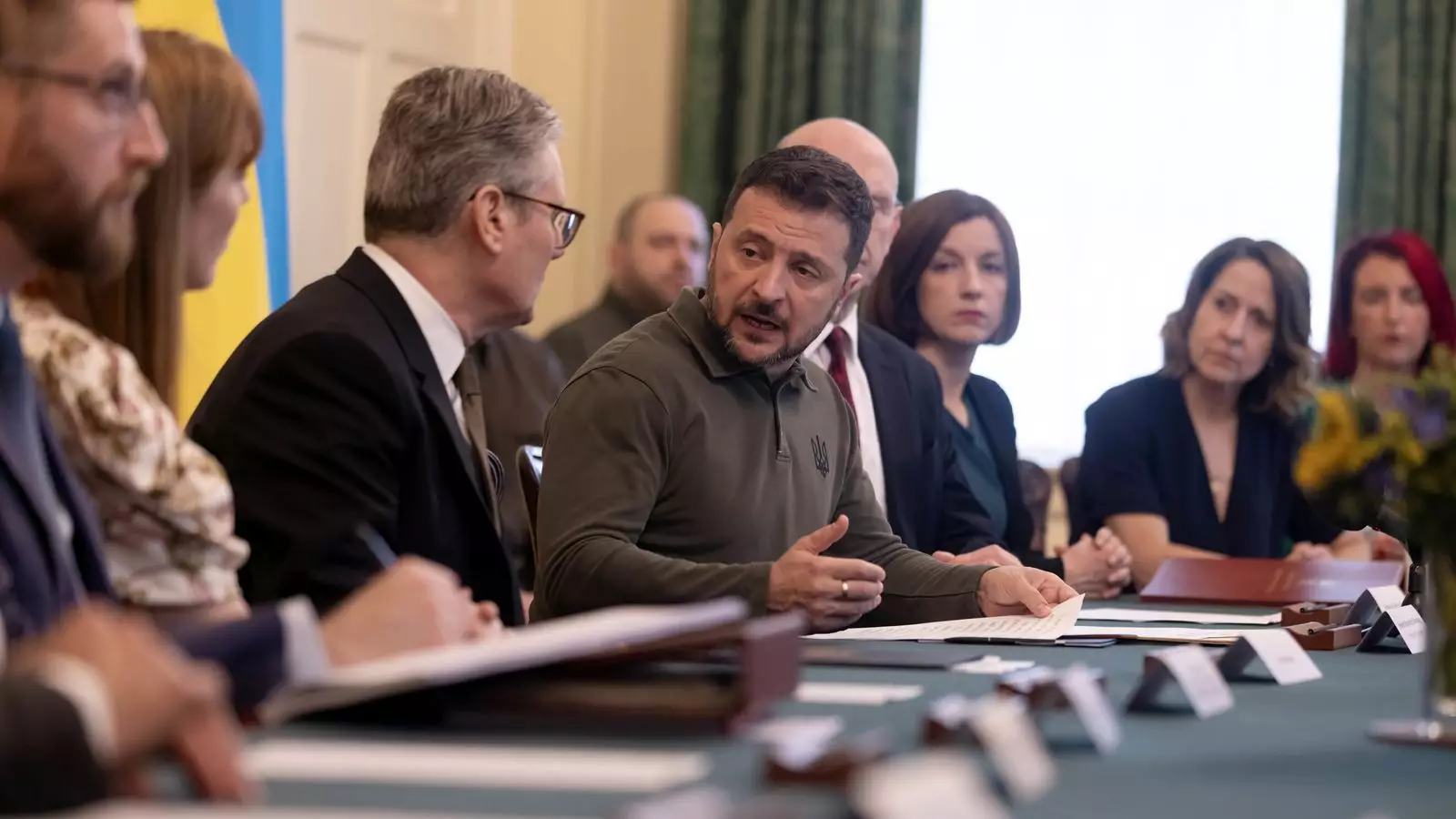In recent discussions surrounding national security and military expenditure in the UK, a significant consensus has emerged among government officials regarding the urgent need to enhance defence funding. The dialogue has intensified following alarming global developments that underline the precarious nature of international relations and security. Business Secretary Jonathan Reynolds has been vocal about this necessity, recognizing that the prevailing geopolitical climate demands an increased defence budget. He contended on Sky News that the collective will of the government and the cabinet aligns with this sentiment and emphasized the need for coherent strategies to reinforce national security.
Chancellor Rachel Reeves is positioned at the center of this debate as her decisions could potentially steer the future of UK’s defence spending. While some reports suggest that there may be friction between the Chancellor and the Prime Minister regarding military funds, Reynolds refutes these claims, asserting that collective acknowledgment of defence imperatives prevails within the cabinet. He articulated that many agree defence is a fundamental pillar of not only national security but also economic prosperity, suggesting that investment in the military is not merely a matter of security but a strategy for ensuring the UK’s long-term stability and growth.
The disparity between the current defence spending of 2.3% and the NATO guideline of 2.5% has become a critical talking point. This backdrop serves as a catalyst for heightened scrutiny over the military budget. Recent reports indicated that Sir Keir Starmer has engaged in direct conversations with high-ranking military officials to explore the necessary financial allocations to meet escalating security demands. Internal sources suggest that while there might be reluctance on the part of Reeves to approve additional funds this fiscal year, Starmer may ultimately assert decision-making authority to ensure that defence imperatives are adequately addressed.
The outcome of these discussions is vital, especially with intelligence indicating a growing apprehension regarding global security dynamics, particularly due to shifting priorities from the United States under the leadership of Donald Trump. These developments evoke concerns among UK officials that European NATO members, including the UK, cannot afford to sit on their laurels regarding military preparedness. The plea for increasing defence spending extends beyond just meeting required benchmarks; it reflects the urgent need for a sustained commitment to modernize military capabilities and bolster recruitment and personnel management.
The unfolding conversations are further complicated by international scenarios, such as the impending peace talks involving President Trump and Russia concerning Ukraine. The exclusion of critical European partners from these discussions reflects a concerning trend that may undermine the collective strength of NATO. Rachel Ellehuus, a noted defence analyst, argued that NATO allies should prioritize not only meeting the minimum spending targets but exceeding them to address contemporary threats effectively. She urges that this responsibility should be met with urgency, investing not just in conventional military apparatus but also fostering innovation in defence strategies.
As leaders from across Europe convene to discuss the ongoing crisis in Ukraine, the pressure mounts for the UK to present a robust approach to defence and security, showcasing a commitment to international solidarity and stability. The forthcoming meeting in Paris, organized by French President Emmanuel Macron, presents a foundational opportunity for Sir Keir Starmer to articulate his stance on the UK’s role and its expectations regarding increased defence expenditure.
In light of these developments, Prime Minister’s assertion of a “once in a generation moment” for transatlantic collaboration underlines the transformative potential of recent geopolitical events. Moving forward, it is imperative for the UK government to navigate the complexities of defence spending judiciously, balancing financial stewardship with the undeniable need for enhanced military capabilities. The outcome of these discussions not only reflects internal government negotiations but also sets a precedent for how the UK engages with global security challenges and its allies in a rapidly changing world.
As the UK grapples with these pressing issues, the conviction that a well-funded armed force is critical to protecting national and international interests has never been stronger. The commitment to advance defence spending reflects a broader understanding that peace and security require ongoing investment in both manpower and technological advancements, crafting a resilient strategy against the uncertainties that lie ahead.

